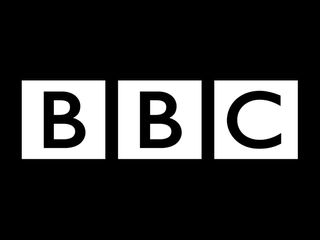BBC: We contribute £2 for every £1 of licence fee
Auntie mounts persuasive defence

The BBC contributes £2 to the British economy for every £1 spent in licence fee, according to the broadcaster's chief operating officer.
BBC COO Caroline Thompson, referring to the latest BBC report into its economic impact, which came up with some interesting figures.
"A new report published today seeks to measure this positive economic impact and the results are quite striking," blogged Thompson.
Twofer
"In 2009/10 the BBC contributed well over £8bn (£8,170m) gross value to the UK economy. This is 5.6 per cent higher than the £7.7bn contributed last year. That is well over £2 of economic value for every £1 invested in the licence fee.
"To test the robustness of this analysis, we modelled an advertising-funded BBC to find the specific value attributable to the licence fee.
"This model estimated net value added at over £5bn (£5,087m), 14.9 per cent above last year's £4.4bn.The report shows we have been spreading the economic benefits further. (The report covers 2009/10 when the licence fee rose by just 2 per cent. The licence fee has since been frozen to 2016/17)."
Get daily insight, inspiration and deals in your inbox
Get the hottest deals available in your inbox plus news, reviews, opinion, analysis and more from the TechRadar team.
Fiscal benefits
The BBC licence fee has been a huge area of controversy for years, and yet the research underlines that, on top of the huge benefits brought by the broadcaster in terms of quality programming and innovation, there are also financial benefits to having a publicly-funded broadcaster.
Thompson also points to the BBC impact outside of its traditional home in London, in particular the big move to a Manchester base.
"This evidence signals that our move to Salford Quays in the coming months will help build a more thriving creative sector in the North of England," added Thompson.
"And that growth hasn't been to the detriment of London or the South where thanks to BBC Worldwide in particular our increased commercial success has also boosted economic activity and returned profits back into programme making."
Support creative industries
"So it's clear that whilst our drive to serve and reflect the whole of the UK is to make real editorial gains - better programmes that reflect people's lives on screen - we can also support the creative industries right across the UK," she concluded
"If the BBC wasn't supporting and sustaining jobs in Glasgow, Salford, Bristol and London then the British nation would be poorer both in our wallets, and for the quality of programmes we enjoy."
Via BBC
Patrick Goss is the ex-Editor in Chief of TechRadar. Patrick was a passionate and experienced journalist, and he has been lucky enough to work on some of the finest online properties on the planet, building audiences everywhere and establishing himself at the forefront of digital content. After a long stint as the boss at TechRadar, Patrick has now moved on to a role with Apple, where he is the Managing Editor for the App Store in the UK.
Most Popular


